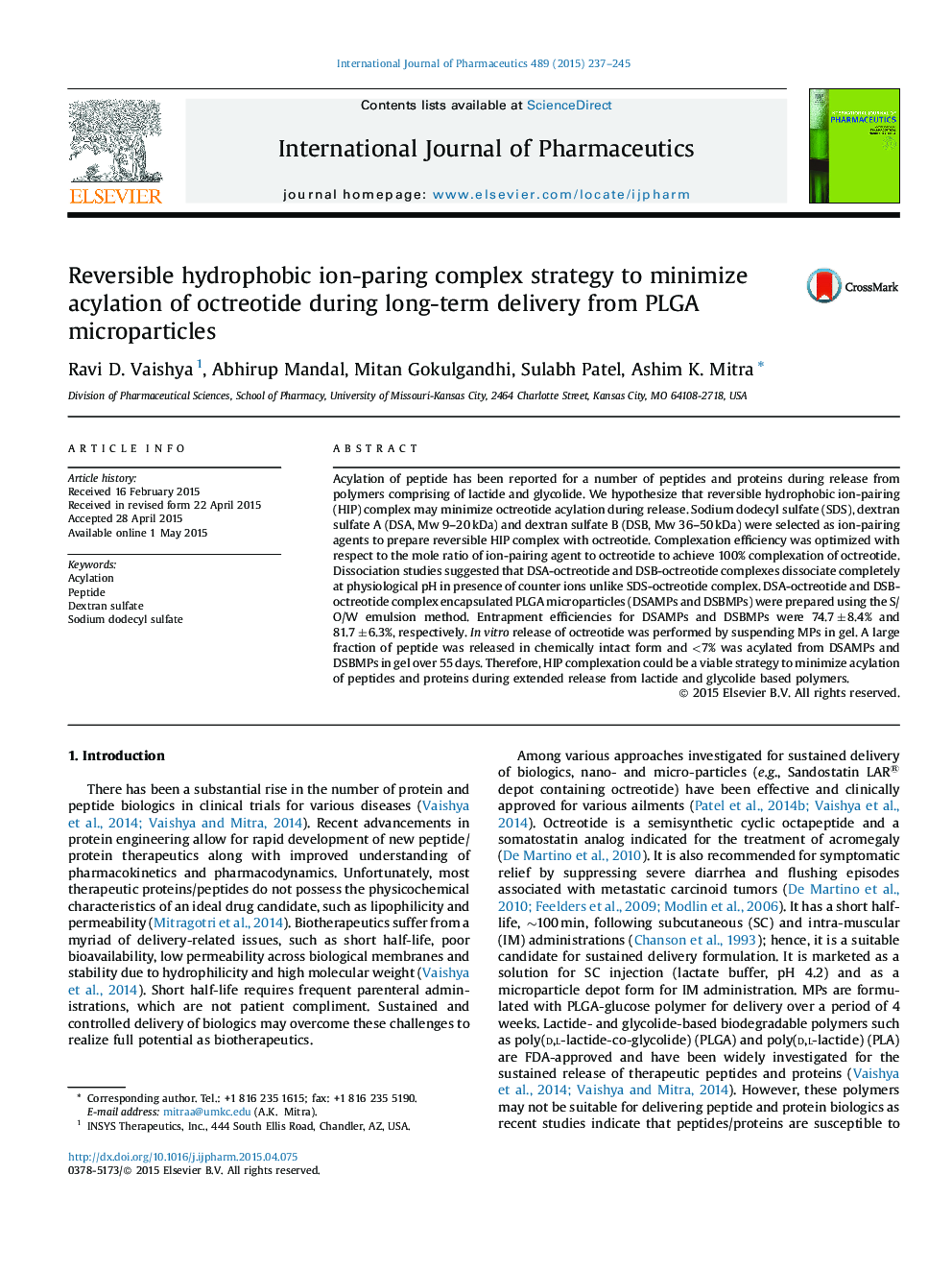| Article ID | Journal | Published Year | Pages | File Type |
|---|---|---|---|---|
| 2501386 | International Journal of Pharmaceutics | 2015 | 9 Pages |
Acylation of peptide has been reported for a number of peptides and proteins during release from polymers comprising of lactide and glycolide. We hypothesize that reversible hydrophobic ion-pairing (HIP) complex may minimize octreotide acylation during release. Sodium dodecyl sulfate (SDS), dextran sulfate A (DSA, Mw 9–20 kDa) and dextran sulfate B (DSB, Mw 36–50 kDa) were selected as ion-pairing agents to prepare reversible HIP complex with octreotide. Complexation efficiency was optimized with respect to the mole ratio of ion-pairing agent to octreotide to achieve 100% complexation of octreotide. Dissociation studies suggested that DSA-octreotide and DSB-octreotide complexes dissociate completely at physiological pH in presence of counter ions unlike SDS-octreotide complex. DSA-octreotide and DSB-octreotide complex encapsulated PLGA microparticles (DSAMPs and DSBMPs) were prepared using the S/O/W emulsion method. Entrapment efficiencies for DSAMPs and DSBMPs were 74.7 ± 8.4% and 81.7 ± 6.3%, respectively. In vitro release of octreotide was performed by suspending MPs in gel. A large fraction of peptide was released in chemically intact form and <7% was acylated from DSAMPs and DSBMPs in gel over 55 days. Therefore, HIP complexation could be a viable strategy to minimize acylation of peptides and proteins during extended release from lactide and glycolide based polymers.
Graphical abstractFigure optionsDownload full-size imageDownload high-quality image (153 K)Download as PowerPoint slide
